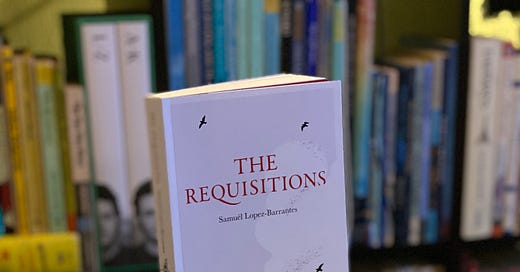This is not a synopsis about a novel about WWII
historical metafiction 27-years in the making
1
I’m back in my childhood home in Chapel Hill, NC, enjoying Christmas Festivus with my twin brother
We’re here to celebrate, but we’re also here to sort through discard almost everything in our childhood home before putting the house up for sale next year.
My brother and I left North Carolina in 2010, but remnants of the past still linger ev…
Keep reading with a 7-day free trial
Subscribe to if not, Paris to keep reading this post and get 7 days of free access to the full post archives.




